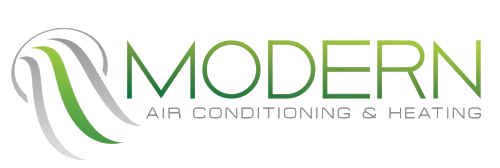Exploring the Impact of HVAC Systems on Indoor Air Quality
The impact of HVAC (Heating, Ventilation, and Air Conditioning) systems on indoor air quality (IAQ) is crucial for creating a safe and comfortable living environment.
The impact of HVAC (Heating, Ventilation, and Air Conditioning) systems on indoor air quality (IAQ) is crucial for creating a safe and comfortable living environment. HVAC systems are important for controlling temperature, humidity levels, and air circulation, all of which can have a direct impact on IAQ. The following key factors influence IAQ and the impact of HVAC systems.
Ventilation
Adequate ventilation is vital for maintaining good IAQ. HVAC systems provide ventilation by exchanging stale indoor air with fresh outdoor air. The ventilation process helps remove stagnant air, moisture, odors, and harmful pollutants from indoor spaces. Properly designed HVAC systems incorporate ventilation mechanisms that adhere to industry standards and building codes. Efficient ventilators, such as energy recovery ventilators (ERVs) or heat recovery ventilators (HRVs), are often integrated into HVAC systems to improve indoor air exchange while minimizing energy loss.
Filtration
HVAC systems typically include filters that capture dust, pollen, pet dander, and other airborne particles. Filters vary in efficiency depending on their ratings. High-efficiency filters, such as HEPA (High-Efficiency Particulate Air) filters, effectively eliminate smaller particles. Regularly cleaning or replacing filters is important to maintain their effectiveness and prevent the recirculation of pollutants. HVAC system maintenance plans often include filter replacement as a routine service.
Humidity Control
HVAC systems are essential in maintaining optimal humidity levels within indoor spaces. Excessive moisture can increase mold growth, negatively affecting IAQ and leading to respiratory issues. HVAC units with dehumidifiers help control humidity, preventing mold growth and associated health problems. During drier conditions, especially in winter, some HVAC systems are equipped with humidifiers to add moisture to the air, preventing dryness and discomfort.
Maintenance and Cleanliness
Regular maintenance of HVAC systems is crucial for maintaining optimal IAQ. Dirty or poorly maintained systems can contribute to the spread of contaminants, such as allergens, dust, and bacteria. Regular cleaning, inspection, and servicing of HVAC equipment, including coils, ductwork, and condensate pans, help prevent the buildup and dissemination of pollutants. Ensuring that surfaces are clean, filters are replaced regularly, and system components are in good working condition allows the HVAC system to perform optimally and maintain good IAQ.
Outdoor Air Quality
While HVAC systems aim to improve IAQ, outdoor air quality also plays a significant role. Smoke, exhaust fumes, pollen, and pollutants from nearby industrial activities can infiltrate indoor spaces. HVAC systems equipped with air filtration, proper air intake locations, and effective sealing can help reduce the infiltration of outdoor contaminants, improving IAQ. Consider installing outdoor air intake filters or using advanced filtration technologies to improve air quality.
Duct Cleaning
Over time, ductwork within HVAC systems can accumulate dirt, dust, allergens, and other pollutants. These contaminants can be dispersed into the indoor air when the system operates. Periodic duct cleaning can help remove these pollutants and maintain good IAQ. When scheduling HVAC maintenance, inquire about duct cleaning services or make a separate appointment with a qualified duct cleaning professional to ensure proper contaminants removal.
Monitoring and Air Quality Testing
Regular monitoring and air quality testing can help identify potential IAQ issues. By assessing air quality and analyzing samples, valuable insights into the effectiveness of an HVAC system can be obtained, determining if any specific pollutants or contaminants need to be addressed. Professional IAQ assessments provide comprehensive data and recommendations for improving air quality. Through the analysis of indoor air samples, potential issues can be identified, and proper actions can be taken to mitigate them.
Maintaining good IAQ relies on a well-designed and properly maintained HVAC system. Regular maintenance, filtration, ventilation, humidity control, and attention to outdoor air quality contribute to healthy indoor environments. By properly addressing these factors, HVAC systems can effectively improve IAQ, providing comfort, safety, and a better overall living experience. Consulting with an HVAC professional can help assess specific needs and recommend appropriate solutions to optimize IAQ within a space. Proper care and maintenance can create a healthier indoor environment for optimal well-being.
Modern Air Conditioning & Heating is a Boulder City-based HVAC company offering 15 years of experience in residential and commercial HVAC services for all makes and models. You can also call us directly at (702) 919-4365.

